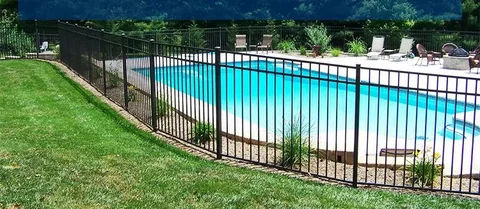Owning a pool is a great luxury, but it also comes with serious responsibilities—especially when it comes to safety. One of the most important safety measures is proper fencing. In this guide, we’ll break down pool fence Installation 101: What Homeowners Need to Know so you can make informed decisions and keep your family safe.
Why Pool Fencing is Essential
Before diving into the specifics of installation, it’s crucial to understand why pool fences are necessary. They serve several purposes:
- Child and pet safety: A sturdy fence prevents unsupervised access, reducing the risk of accidents.
- Legal requirements: Many states and municipalities have laws requiring pool fences that meet specific standards.
- Peace of mind: Knowing your pool is secure offers reassurance whether you’re home or away.
Types of Pool Fences
Understanding your options is key to choosing the right fence for your home. Here are the most common types:
1. Mesh Pool Fencing
- Lightweight and removable
- Great for families with young children
- Offers clear visibility of the pool
2. Aluminum and Steel Fencing
- Durable and low-maintenance
- Often used for their sleek appearance
- Can be customized to match your yard aesthetics
3. Glass Fencing
- Modern and stylish
- Offers unobstructed views of the pool area
- Typically more expensive
Key Features to Consider Before Installation
When planning for your fence, consider the following factors:
- Height and spacing: Most laws require a fence to be at least 4 feet high with gaps no larger than 4 inches.
- Self-closing gates: These are a must-have feature to enhance safety.
- Material durability: Choose materials that can withstand weather conditions and require minimal upkeep.
- Visibility: Ensure the fence doesn’t block your view of the pool, especially if you’re supervising children.
Pool Fence Installation 101: What Homeowners Need to Know Before Hiring a Pro
Hiring a professional ensures the job is done right the first time. Here’s what you need to know:
Check Local Laws and Permits
Each region has different pool safety codes. Always verify local regulations and secure necessary permits before installation begins.
Get Multiple Quotes
Prices can vary based on material, size, and complexity. Compare at least 2–3 quotes to ensure fair pricing.
Ask About Warranty and Maintenance
A good contractor should offer a warranty and clear guidance on how to maintain your fence over time.
DIY vs. Professional Installation
Some homeowners opt to install pool fences themselves to save money. While this can work for certain types (like mesh), it’s best to leave permanent installations like glass or steel to professionals.
Remember: cutting corners on safety could end up costing more in the long run.
Final Thoughts
When it comes to Pool Fence Installation 101: What Homeowners Need to Know, the key takeaway is that safety, legality, and durability should drive your decisions. Whether you choose mesh, aluminum, or glass, make sure your pool fence meets all local codes and provides the protection your household needs.



